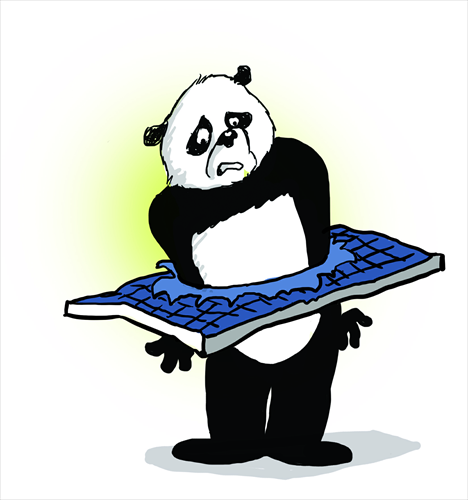EU-China trade relations require cool heads

Illustration: Liu Rui/GT
Trade relations between the EU and China are of key importance for both sides. The two are highly interdependent, constituting two of the biggest traders in the world.
Nevertheless, although their economic cooperation has been relatively smooth in past years, there are disputes which partly influence the good climate. One of the most characteristic examples is related to the so-called anti-dumping duties initially proposed by the European Commission to be applied to imports of Chinese solar panels sold in Europe.
In the view of the European Commission, the price of these Chinese products is much lower in comparison to similar European ones, jeopardizing market stability. As a response, Trade Commissioner Karel De Gucht has led an extended investigation, which lasted 13 months, pushing toward the imposition of new tariffs.
His perceived objective has been to protect European manufacturers by offering them oxygen to survive the competition.
In parallel with the Commission, the EU Council also backed its proposal. Subsequently, duties will apply for two years as of December 6.
The decision reached is based on an accord negotiated with China on July 27. On this basis, various Chinese solar companies accepted to sell their panels in the EU at a minimum price of 0.56 euros ($0.76) per watt.
In practice, this means that those Chinese exporters who favor the compromise will continue to be exempt from paying any anti-dumping duties which will otherwise stay at an average of 47.6 percent.
The good news is that the achieved solution has come through consultations between Brussels and Beijing, highlighting the importance of fruitful negotiations for solving similar thorny issues.
From the very beginning, the European Commission has presented a tough stance toward China on launching anti-dumping levies. The solar panels case dominates trade disputes, but it also reveals diverging positions in Europe.
Leading European countries such as Britain and Germany were hesitant to accept the proposal of the Commission.
London, for instance, opposed the plan on the grounds that it could hit British business interests supplying solar equipment.
On the same wavelength, the country's Solar Trade Association lobbied against the Commission's initiative, warning of negative consequences for companies.
For its part, Germany did follow a similar policy in line with that of Britain.
The Federation of German Industries led the campaign against anti-dumping levies anticipating a significant rise in the price of solar panels in Europe.
Further to this, Berlin was keen on protecting its excellent economic cooperation with Beijing by removing barriers which could cause frustration to the latter.
That is why Chancellor Angela Merkel attempted to successfully mediate in order for a compromise to be found on the matter.
On May 26, for example, she expressed her will to engage in negotiations during a press conference with China's Premier Li Keqiang in Beijing.
In spite of disagreements, even if they derive from leading European countries, the nature of European integration is based on the logic of making concessions and then compromises.
Only on these grounds can 28 member states find common denominators on highly different subjects and preserve their union. This is what also happened in the case of anti-dumping duties for Chinese solar panels.
Within this context, member states opposing the measures gave their authorization. In the final account, European law empowers the Commission to take similar actions as it happened with anti-dumping fines.
From another perspective, however, the solution which was found on July 27 and was approved by Brussels cannot be satisfactory for many Chinese companies disagreeing with the amicable settlement.
Their argument, that the new measures are protectionist, is fair and rational, and is likely to lead Beijing to follow similar practices on European products exported into the country such as wine.
In other words, the muscular stance shown by the EU might generate an understandably aggressive reaction from China, locking trade in a labyrinth of disputes and problems.
It is not worth starting a debate on whether Brussels or Beijing should assume greater responsibility for occasional disagreements as it is happening with solar panels. What is more significant for both sides is to avoid extreme reactions and policies which can undermine their relations in the new interdependent multipolar world.
Of course being wilful, obstinate and parochial cannot constitute useful elements for a cooperative policy.
This is also the case with the counterproductive logic of retaliation in international politics.
The author is a research fellow at the Hellenic Foundation for European and Foreign Policy. opinion@globaltimes.com.cn